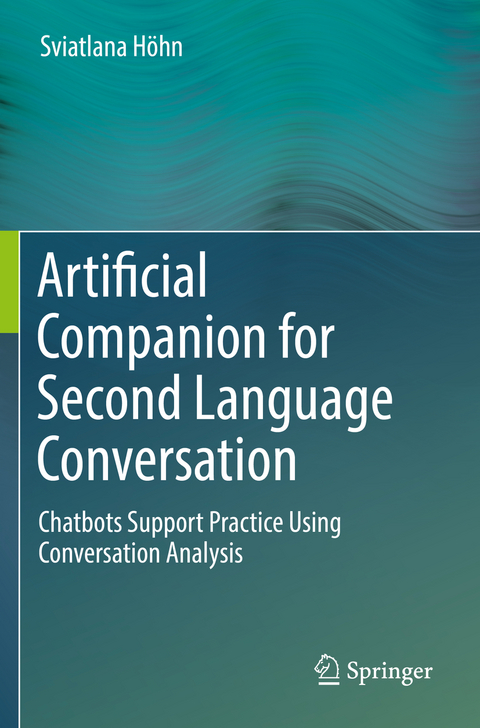
Artificial Companion for Second Language Conversation
Springer International Publishing (Verlag)
978-3-030-15506-3 (ISBN)
The research described in this book shows that conversation analysis can effectively model dialogue. Specifically, this work shows that the multidisciplinary field of communicative ICALL may greatly benefit from including Conversation Analysis. As a consequence, this research makes several contributions to the related research disciplines, such as conversation analysis, second-language acquisition, computer-mediated communication, artificial intelligence, and dialogue systems.
The book will be of value for researchers and engineers in the areas of computational linguistics, intelligent assistants, and conversational interfaces.
Dr. Sviatlana Höhn is a researcher at the University of Luxembourg where she is building a new lab called "Artificial Companions and Chatbots" focusing on the application of conversational interfaces in education and complex technical systems. She earned her Ph.D. from the University of Luxembourg in 2016. Originally from Belarus, she qualified to teach German and English as foreign languages in her home town Vitebsk in 2001. She moved to Germany in 2003 to study Computer Science and earned her Master's in Computer Science and Linguistics. She is interested in cross-disciplinary and cross-sectoral research related to dialogue systems and interaction. She is engaged in university teaching, specifically addressing 21st century skills in her courses. She spends her free time mostly with her two kids who were 2 and 5 when this book was published.
Part I, Background.- Setting the Scene.- Learning from Others' Experience.- Part II, Using Conversation Analysis for Dialogue Modelling.- Patterns for Expert-Novice Chats.- Other-Initiated Self-repair with Linguistic Trouble Source.- Exposed Corrections.- Embedded Corrections.- Models of Learner-Error Corrections.- To Correct or Not to Correct.- Method Evaluation.- Part III, Model Validation and Future Directions.- Implementation of an Artificial Conversation Companion.- Future Research Directions.- Part IV, Supplements.- App. A, Data.- App. B, Coding Scheme for Polar Questions.- App. C, Examples.- References.
| Erscheinungsdatum | 18.07.2020 |
|---|---|
| Zusatzinfo | XIII, 346 p. 21 illus., 12 illus. in color. |
| Verlagsort | Cham |
| Sprache | englisch |
| Maße | 155 x 235 mm |
| Gewicht | 551 g |
| Themenwelt | Geisteswissenschaften ► Sprach- / Literaturwissenschaft ► Sprachwissenschaft |
| Informatik ► Software Entwicklung ► User Interfaces (HCI) | |
| Informatik ► Theorie / Studium ► Künstliche Intelligenz / Robotik | |
| Schlagworte | Chatbots • Collaborative Learning • Computational Models for Learning • Conversational Agents • conversation analysis • Data-driven Design • dialog processing • Dialogue Design • Human-Computer Interaction (HCI) • Language Learning |
| ISBN-10 | 3-030-15506-4 / 3030155064 |
| ISBN-13 | 978-3-030-15506-3 / 9783030155063 |
| Zustand | Neuware |
| Haben Sie eine Frage zum Produkt? |
aus dem Bereich


